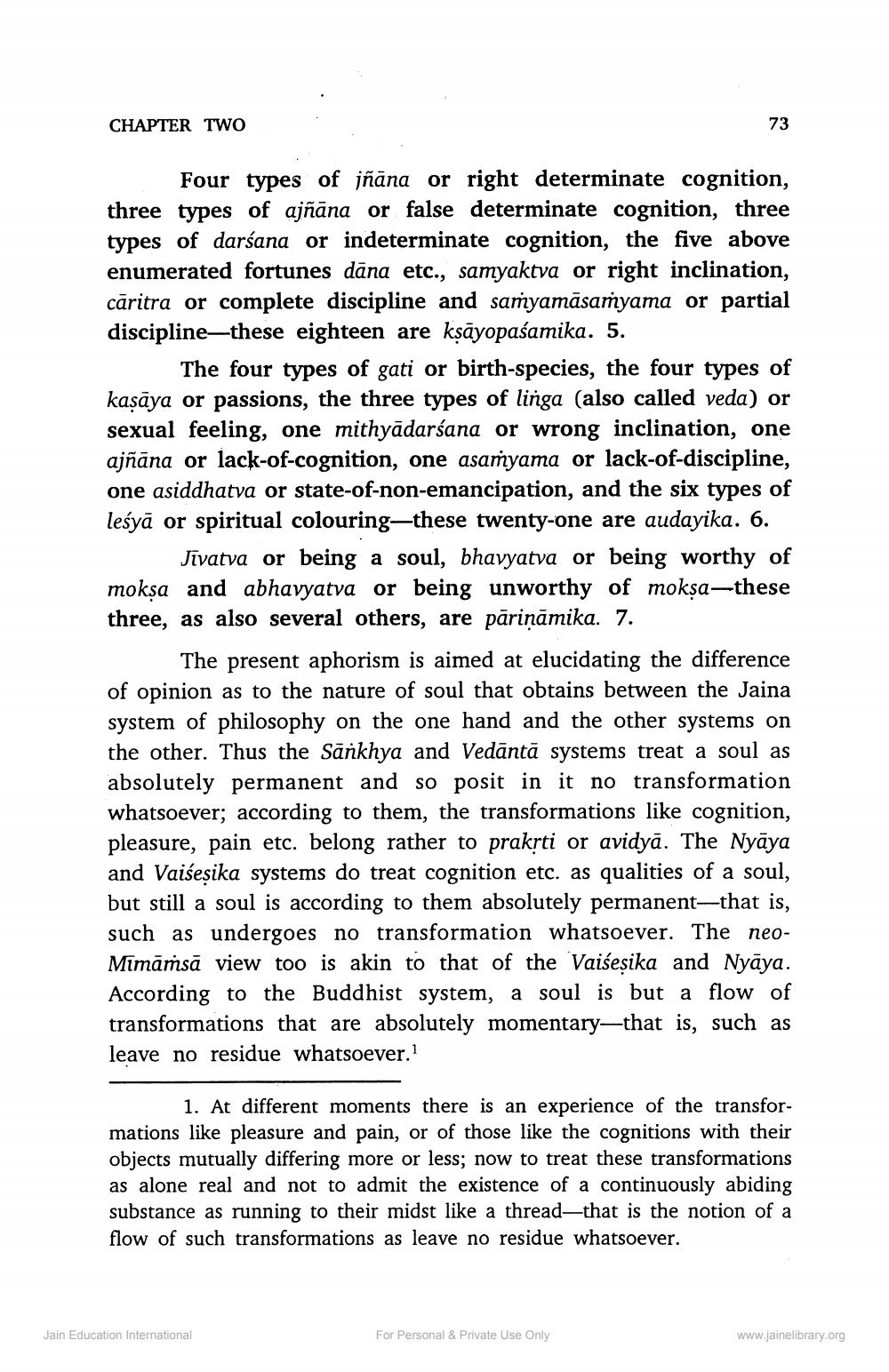________________
CHAPTER TWO
73
Four types of jñāna or right determinate cognition, three types of ajñāna or false determinate cognition, three types of darśana or indeterminate cognition, the five above enumerated fortunes dāna etc., samyaktva or right inclination, cāritra or complete discipline and samyamāsamyama or partial discipline—these eighteen are ksāyopaśamika. 5.
The four types of gati or birth-species, the four types of kaṣāya or passions, the three types of linga (also called veda) or sexual feeling, one mithyādarśana or wrong inclination, one ajñāna or lack-of-cognition, one asamyama or lack-of-discipline, one asiddhatva or state-of-non-emancipation, and the six types of leśyā or spiritual colouring—these twenty-one are audayika. 6.
Jivatva or being a soul, bhavyatva or being worthy of mokșa and abhavyatva or being unworthy of mokşa—these three, as also several others, are pāriņāmika. 7.
The present aphorism is aimed at elucidating the difference of opinion as to the nature of soul that obtains between the Jaina system of philosophy on the one hand and the other systems on the other. Thus the Sārkhya and Vedāntā systems treat a soul as absolutely permanent and so posit in it no transformation whatsoever; according to them, the transformations like cognition, pleasure, pain etc. belong rather to praksti or avidyā. The Nyāya and Vaiseșika systems do treat cognition etc. as qualities of a soul, but still a soul is according to them absolutely permanent—that is, such as undergoes no transformation whatsoever. The neoMimāṁsā view too is akin to that of the Vaiseșika and Nyāya. According to the Buddhist system, a soul is but a flow of transformations that are absolutely momentary—that is, such as leave no residue whatsoever. 1
1. At different moments there is an experience of the transformations like pleasure and pain, or of those like the cognitions with their objects mutually differing more or less; now to treat these transformations as alone real and not to admit the existence of a continuously abiding substance as running to their midst like a thread—that is the notion of a flow of such transformations as leave no residue whatsoever.
Jain Education International
For Personal & Private Use Only
www.jainelibrary.org




